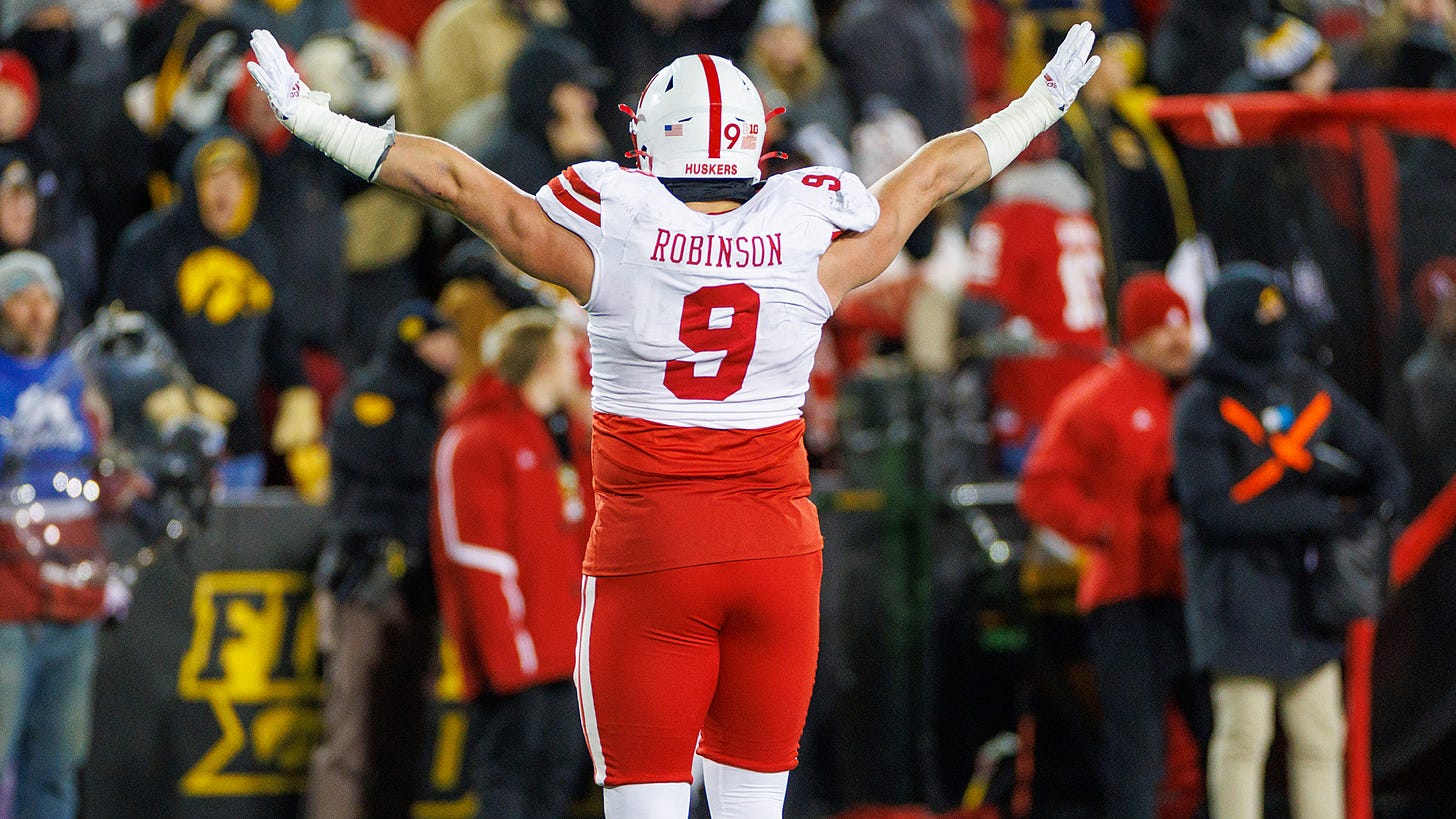The Equation: Maybe there's some magic to 9 wins
Nine wins holds certain significance for Nebraska fans of a certain age, but maybe there are objective reasons for that.
Nine wins still holds an important place in the history of Nebraska football. Or maybe I’m just the age of a person most likely to think that.
Winning nine college football games is “nothing magical.” It’s fairly arbitrary when you really think about it. Nine wins at Nebraska might mean what six (or four, or eight) mean somewhere else. It never unlocked anything on its own for the Huskers, but it’s special because the Huskers always hit at least that number for the better part of 40 years and no other program did.
You know all these numbers already, but just to make sure all the evidence has been submitted—Bob Devaney won at least nine games in nine of his 11 seasons, starting in 1962. His successor, Tom Osborne never won fewer than nine over 25 seasons. Osborne’s successor, Frank Solich, won nine-plus in five of his six seasons but was also the coach of the team that snapped a 32-year streak. He was fired one year later. Bo Pelini—who was fond of noting things weren’t magical in his postgame press conferences—hit the magic number in all seven of his seasons in Lincoln. He was fired, too.
I’m still looking for the perfect context for Nebraska’s 32-season streak (1969–2001) of nine-plus wins, and today I’m going to try this one out: Husker football won at least nine games a year for almost the entire existence of the Montreal Expos (1969–2004). From the time that quirky-but-charming logo was part of Major League Baseball until it was retired, Nebraska was a nine (plus)-win team in 33 of those 35 seasons.1
Arbitrary, sure, but non-arbitrarily impressive anyway.
Or maybe it’s not so arbitrary. At least that’s a theory I’m entertaining after a random discovery last week.




